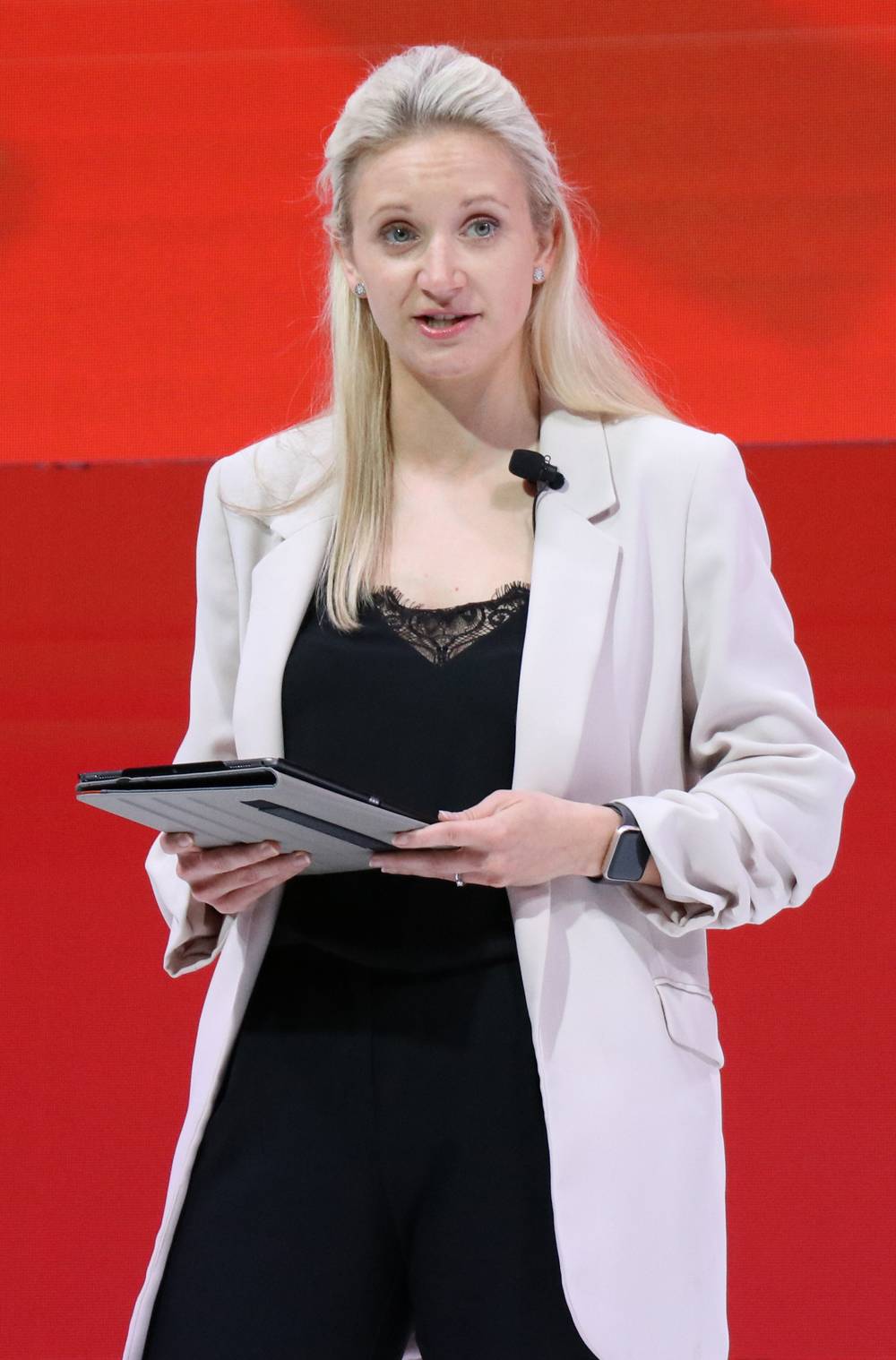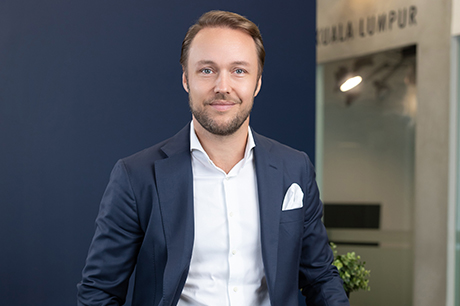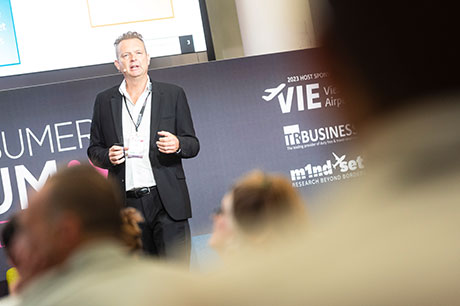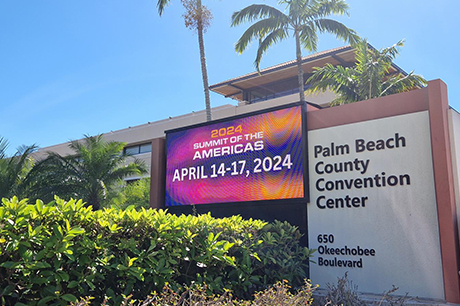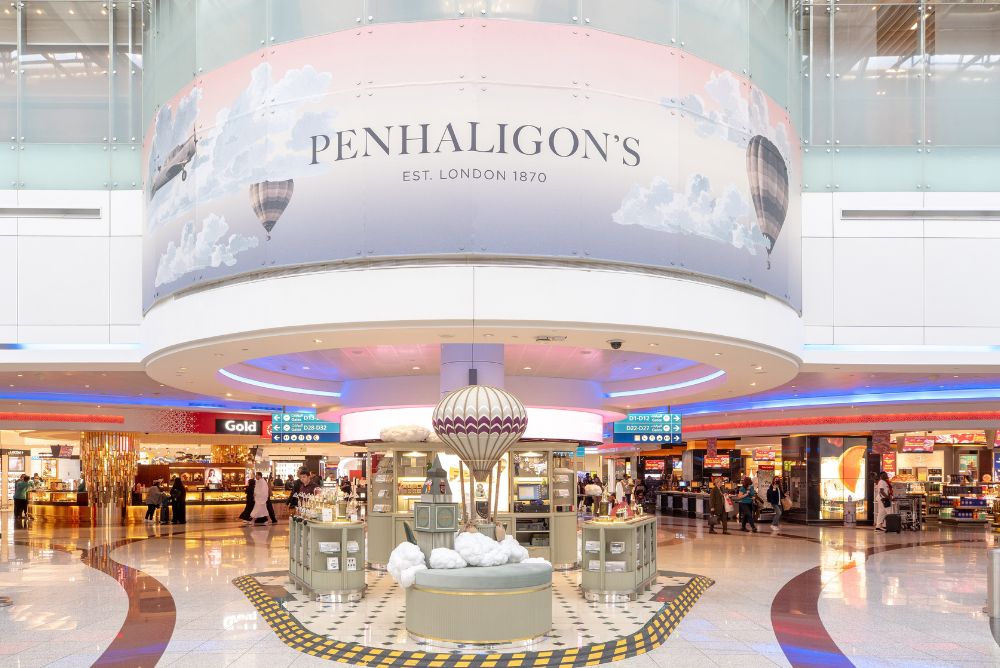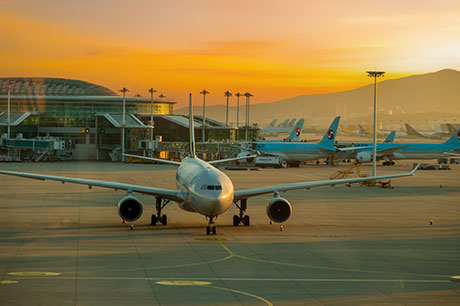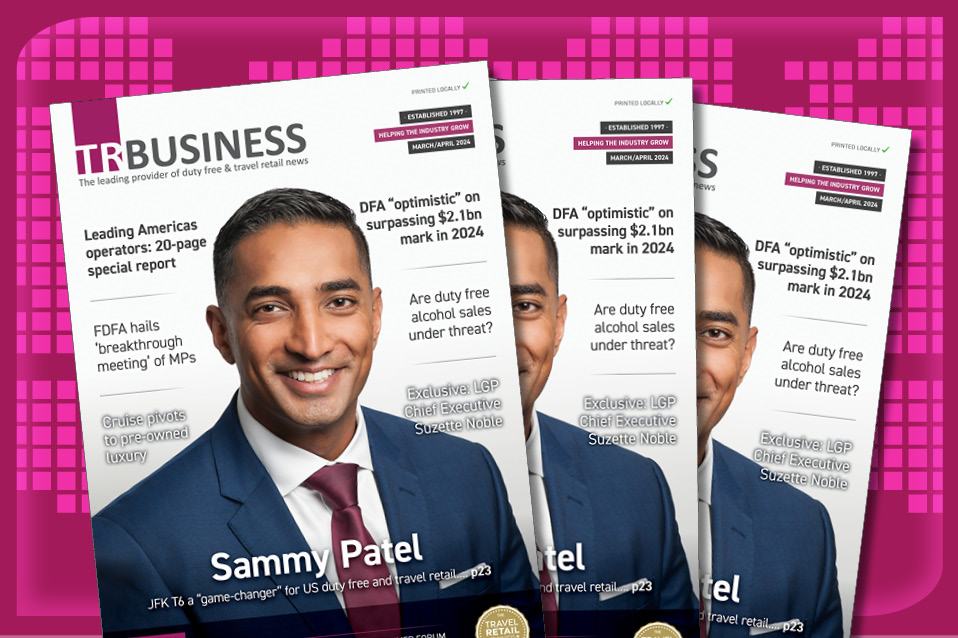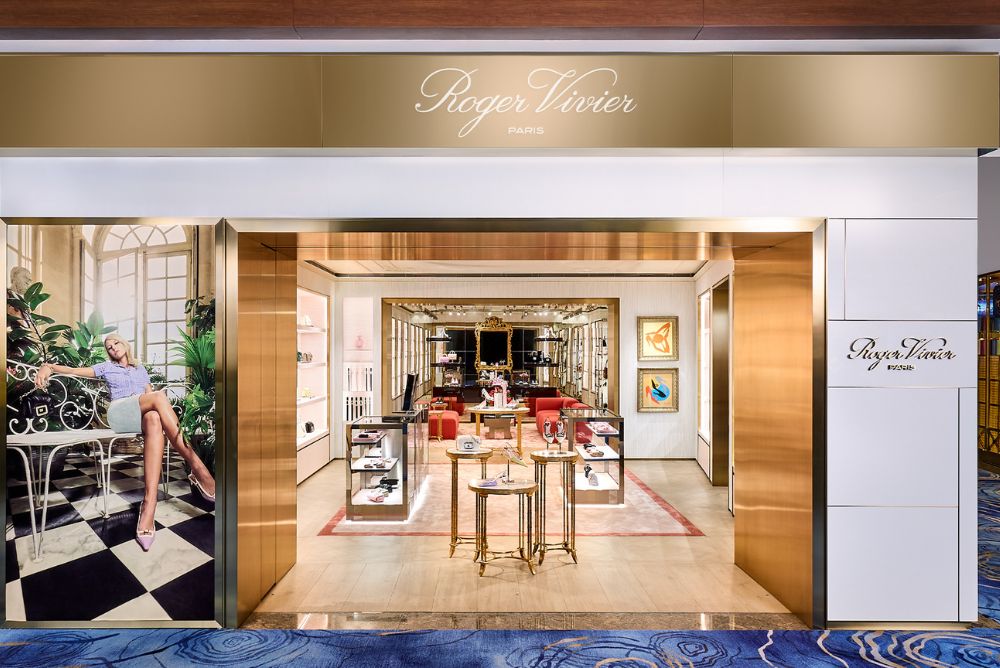‘Green is good’ journey rewards collaborative actors
By Luke Barras-hill |

The ‘Sustainable futures’ panel session took place on 11 May at TFWA Asia Pacific Live, which gathered 677 delegates.
There is ‘healthy linkage’ between the Sustainability & CSR pursuits of companies and the pressure of financial accountability that can entail, delegates at TFWA Asia Pacific Live (9-11 May) heard this week.
As part of the busy two-day workshop programme, TRBusiness partnered with TFWA to host the ‘Sustainable futures’ session at 14:00 on Wednesday 11 May.
Expertly moderated by TRBusiness Editorial Director Charlotte Turner, ‘Sustainable futures’ drew on a major recent research study conducted by travel retail insights expert m1nd-set.
This explored what sustainability means for shoppers in Asia, how perceptions vary by nationality and the role that environmental and social concerns play in purchase decisions.
A high-profile panel comprised Jaya Singh, Managing Director, Mondelez World Travel Retail (MWTR); Peter Mohn, Founder & CEO, m1nd-set; Anna Marchesini, Head of Business Development, m1nd-set; Melvin Broekaart, Director Global Travel Retail, Rituals; and Jackllyn Chau, Director of Human Resource and Talent Development, Lagardère Travel Retail.
‘GREEN IS GOOD’
MWTR’s Singh pointed out that DF&TR’s ability to be sustainable will determine its future attractiveness as an industry.
“Shareholder and stakeholder value is dependent on a couple of drivers: the attractiveness of talent and the industry,” he opened.
“Green is good. The constructive pressure comes from the financial equation, and the financial equation linked to social responsibility and sustainability is a healthy linkage. It means we are more accountable to the different stakeholders in the world we live.”
He made clear that being ‘sustainable’ is a continuous journey and broadening its scope requires collaboration between all stakeholders.
“I like the things we don’t know, more than the things that we think we know,” he commented.

Jaya Singh, Managing Director, Mondelez World Travel Retail, pointed out that being ‘sustainable’ is a continuous journey and broadening its scope requires collaboration between all stakeholders.
Mondelez’s travel retail division champions its own sustainability commitments under the ‘Travel Retail Made Right’ slogan and the consumer response to date has been ‘strong’, continued Singh.
He went on to describe that consumers are driven by purpose and they will not compromise when searching for products.
“The purpose they are looking for is to be associated with the greater good. If we can deliver on purpose, we will deliver on the economic need of the business model while also delivering on the demands of the financial community and investors and delivering on social responsibilities. It’s a win-win.”
RESPONSIBLE BUYING A KEY METRIC
In a data-rich presentation, m1nd-set’s Head of Business Development Anna Marchesini and Owner and CEO Peter Mohn presented exclusive findings from a recent study on consumer shopping behaviours and attitudes towards sustainable product purchasing.
Data was amassed through fieldwork conducted in Q1 this year using online quantitative interviews based on m1nd-set’s unique database of international travellers.
Those travellers live in Asia or the Pacific, were male and female aged over 18 years of age, were regular duty free shoppers and had travelled internationally by air in the past six months.
Among the findings, 85% of consumers are either quite concerned or very concerned about shopping in a sustainable manner.
Sustainability as a purchase driver ranked in third position at 44% when studying the key factors for Asia Pacific travellers choosing products in duty free stores
Of that figure, 14% mentioned sustainability as the number one factor under consideration.
83% of shoppers expect to find a space dedicated towards sustainable products in duty free shops.
Examining this in more detail, 69% of shoppers believe it important that brands offer products with eco-friendly ingredients; 67% of consumers ascribe importance to products with eco-friendly packaging; and 58% possess strong views when it comes to products with eco-friendly production processes.
Forty-seven percent of travellers cited health & wellbeing as a reason to shop for sustainable products in duty free.
Interestingly, 71% would be willing to pay more for a sustainable product in duty free. Of that, 66% would be inclined to pay up to 15% more for such products.
However, 38% were dissatisfied with the current sustainable product assortment in duty free shops.
Studying the data, 54% of travellers believe the brands are not committing enough efforts to the cause; 41% referenced a lack of communication; 41% believe there is not enough space; and 13% have no trust in a brand’s sustainability claims.

‘Clean, conscious and caring’: Rituals gives all its staff one ‘karma day’ per year, allowing them to focus on voluntary activities of their choosing that are supported by the company.
When it comes to communication about a brand’s sustainability credentials, in top spot at 46% was official certifications, logos and information on the product shelf.
A combined 84% of shoppers quite or absolutely expect to receive information on a product’s sustainability expectations.
Unsurprisingly, the research revealed that consumers are seeking improvements from brands including cross the manufacturing process (51%), ingredients used (46%), Fair Trade sourcing of ingredients (42%), packaging (37%), promotional materials used instore (42%), and giving back to local communities (42%).
DISPELLING ‘GREENWASHING’
Addressing the statistic that 66% of shoppers would be prepared to spend more on sustainable goods and services, Broekaart stated it should not be necessary.
He agreed with MWTR’s Singh that sustainability is a journey, including for Rituals – now a Certified B Corporation.
“We are thrilled and very happy to be a Certified B Corp company,” said Broekaart. “It is one of the leading labels you can be awarded when it comes to corporate responsibility. It’s not something you can buy and doesn’t come for free. It took us three years to acquire.
“We need to make many small changes within the company, from the formulas within our products, the way we package and handle our products, transportation, how we deal with our colleagues and employees in the office, what we do with the communities that surround us… it’s a very thorough process.”
For the majority of the company’s skus, refills are a major component of its strategy and are available in global travel retail.
He said that by comparing a refill to a similar non-refillable product, the process of bringing to market a refill version reduces the CO2 impact by roughly 70%.
Addressing a question from the audience on how Rituals can convince consumers that the firm’s rhetoric is not greenwashing, Broekaart responded: “It is an important question. It underlines our drivers to become B-Corp Certified.
“The best way to convince consumers is to ask an independent third party on your behalf. In choosing a tough, independent third party like B Corp, for example, the message becomes more straightforward, honest, open and transparent. You can see how each B Corp scores via various criteria on its website.”
On the greenwashing question, MWTR’s Singh emphasised that putting momentum behind awareness of companies’ sustainability actions remains important.
“If it is greenwashing, then ultimately the financial and investment community will look at this industry and say ‘they talk about sustainability, which should be attractive, but they don’t have the content’,” he explained. “There are checks and balances to address perceptions around this.”
EMPOWERING PEOPLE
During the session, Lagardère Travel Retail’s Director of Human Resources and Talent Development Jackllyn Chau provided a detailed strategic outline of the Paris-headquartered travel retailer’s sustainability and CSR strategy, which is structured around Planet, Ethics, People and Social (PEPS).
Addressing the ‘People’ and ‘Social’ aspects in more detail, Chau described the importance of security and wellbeing, education and diversity.
“We place people at the heart of our [PEPS] strategy; employees need to feel valued to deliver active engagement at work. It is crucial for us to ensure the security and wellbeing of staff at work is being taken care of by embracing the people-first mindset.

Held in partnership with TRBusiness and drawing on a major recent consumer study by m1nd-set, the ‘Sustainable futures’ session explored what ‘sustainability’ truly means for shoppers in Asia, how perceptions vary by nationality, and the role that environmental and social concerns play in purchasing decisions. Pictured on stage left to right is m1nd-set’s Anna Marchesini and Peter Mohn, both of whom presented crucial insights to TFWA Asia Pacific Live delegates.
“During the pandemic, a special health and safety management taskforce was formed to take care of all safety concerns. They constantly review to improve hygiene protocols and make sure we give sufficient and quality personal protective equipment to staff and encourage them to go for vaccinations and the booster.
“We also make sure that we conduct rapid testing. These are part of daily operations. We also promote wellness and personal interest sessions for staff engagement and reach out to them frequently to help them deal with stress caused by underlying uncertainties.”
Commenting on diversity, she said in 2021 Lagardère Travel Retail achieved a ratio of female to male employees of 60:40 in its Singapore and Malaysia division with the executive committee promoting regular coaching and mentorship programmes.
Recently, the company recruited a local environmental artist to conduct a workshop around repurposing micro-plastic waste, empowering staff to practice sustainable living at home and at work.
Rituals is another company that strives to empower its staff by affording them all one ‘karma day’ per year.
This allows them to focus on voluntary activities of their choice supported by Rituals.
“Diversity begins with people; if you don’t broaden inclusiveness, you compromise,” added MWTR’s Singh.
Discussions around people, planet and purpose were explored in the first of a two-part closing keynote of the same name during this year’s Travel Retail Sustainability Week. Click below to view the session.
Alcohol insights: Conversion up, spend down in Q4
Conversion of visitors in the alcohol category in duty free has risen to 54% in Q4 2023,...
Heinemann Asia Pacific makes breakthrough in New Zealand at AKL
Heinemann Asia Pacific is set to enter the New Zealand market with three new retail concepts at...
Men buy and spend more in travel retail says new research by m1nd-set
Men have a higher conversion rate and spend more when shopping in travel retail, says new...
-
 International,
International,Alcohol insights: Conversion up, spend down in Q4
-

-


In the Magazine
TRBusiness Magazine is free to access. Read the latest issue now.

 Trbusiness. The travel retail Trbusiness. The magazine for global retail and duty free professionals.
Trbusiness. The travel retail Trbusiness. The magazine for global retail and duty free professionals.
